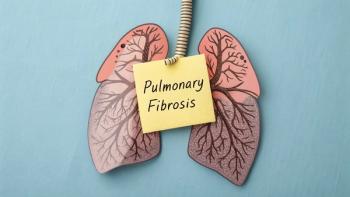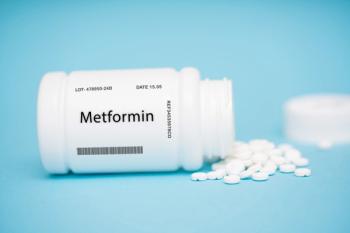
Study Shows Nerandomilast Slowed Lung Function Decline in Progressive Pulmonary Fibrosis
Results come after positive results from a trial among people with idiopathic pulmomary disease.
Nerandomilast (BI 1015550) is an investigational oral drug that selectively inhibits phosphodiesterase 4B, exhibiting antifibrotic and immune-modulating effects. In previous studies, it has been demonstrated to slow the progression of idiopathic pulmonary fibrosis, though its impact on other forms of fibrosing interstitial lung disease (ILD) is not known.
That was the catalyst for a phase 3, double-blind trial conducted by the first and corresponding author,
Results of the study, published in the New England Journal of Medicine (NEJM) on June 12, 2025, showed the efficacy and safety of nerandomilast in patients with progressive pulmonary fibrosis, a diagnosis that encompasses interstitial lung diseases other than idiopathic pulmonary fibrosis. Ofev (nintedanib) is the only treatment for progressive pulmonary fibrosis that the FDA has approved. Overall, the results reported in NEJM showed that patients treated with nerandomilast had a smaller decline in forced vital capacity, a common measurement of lung function, than those who had been randomly assigned to a placebo. Diarrhea was the most common adverse event, and the adverse event tallies were slightly higher in the patients assigned to treatment with the investigational agent. Yet the proportion of adverse events that led to permanent discontinuation of participation in the trial was not higher among the patients in the two nerandomilast groups, and Maher and his colleagues noted in the NEJM publication of their results that the serious adverse events affected roughly the same number of patients.
“Despite numerous challenges in generating new clinical data, IPF [idiopathic pulmonary fibrosis] and PPF [progressive pulmonary fibrosis] continue to severely affect patients’ lives,” Maher said in an email. “The successful completion of two phase 3 trials meeting their primary end points is a significant breakthrough, demonstrating nerandomilast’s potential to address unmet patient needs, whether used alone or alongside existing therapies.”
The researchers enrolled patients with progressive pulmonary fibrosis at multiple sites across 44 countries who were randomly assigned to receive in18 milligrams (mg) of nerandomilast twice a day, a 9 mg dose twice a day, or a placebo. Close to 1,200 patients took part, and participants were grouped according to their background treatment (whether they received nintedanib) and their fibrotic pattern observed on high-resolution CT scans.
The change in forced vital capacity in milliliters from the start of the study to week 52 was the primary endpoint. Maher and his colleagues identified the time to the first acute ILD exacerbation, respiratory-related hospitalization, or death as the key secondary end point,
The results they reported showed that nerandomilast significantly reduced the decline in forced vital capacity compared with placebo. The adjusted average change in forced vital capacity was -98.6 milliliters (mL) in the group that took the 18-mg dose, -84.6 mL in the 9-mg group and -165.8 mL in the placebo group. Notably, the lower dose was associated with a smaller decline in forced vital capacity than the higher dose. The adjusted difference between the 18-mg group and the placebo group was 67.2 mL, and 81.1 mL between the 9-mg group and the placebo group, according to the results published in NEJM.
At the time of the first database lock, which occurred when the last patient had completed the 52-week trial, 95 (24.3%) of the patients in the 18-mg group had had an acute exacerbation of ILD, hospitalization for a respiratory cause or death; 110 (28%) of those in the 9-mg group and 122 (31.1%) in the placebo group. The hazard ratio for those three events was 0.77 in the 18-mg group compared with placebo; in the 9-mg (although the p-value
Over the course of the trial, 17.6% of the patients in the 18-mg group had an adverse event that interrupted their participation compared with 17.3% of those in the 9-mg group and 15.1% of those in the placebo group. Adverse events that led to permanent discontinuation affected 10% of the 18-mg group, 8.1% of those in the 9-mg group and 10.2% of those in the placebo group.
Newsletter
Get the latest industry news, event updates, and more from Managed healthcare Executive.























